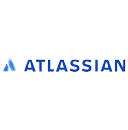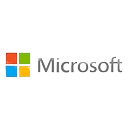Agility Labs™ that solve real problems, real time with design-thinking.
When stress happens people can naturally slip into four subconscious fears.
Prevent the underlying power dynamics of divisiveness with healthy debate.
Monitor the 12 team strengths monthly to keep the team in a state of flow.
145K+
TiltersTeam Climate Profile™
All team members take the True Tilt Personality Profile™ assessment and get a free composite report.
Agility Growth Tracker™
Monitor your balance in 12 character strengths to grow your agility from the inside-out.
Enterprise Dashboard
Manage multiple teams and access human analytic insights on your culture.
Assess your team dynamics
Analyze your team dynamics to identify the key levers that will generate positive influence and agility. .
Moving teams towards a generative mindset contributes to global productivity, creativity, and innovation.
Tilt your team towards generativity
Build a high-performance team with our Team Agility Labs™ by addressing your daily challenges head-on with a blend of design thinking, conflict resolution, and Intentional Tilting.
Our Agility Labs™ delve into your team’s underlying fears that cause internal conflicts and guide you toward swift resolutions.
![Dark-Tilt-Framework-Model-2025[updated]](https://www.tilt365.com/hubfs/Dark-Tilt-Framework-Model-2025%5Bupdated%5D.png)
Agility Labs™ benefits
- Common team language
- Healthy debate
- Rapid alignment
- Enhanced productivity
Who's Tilting




.png?width=1200&length=1200&name=zendesk-removebg-preview%20(1).png)
Lab Use Cases
Give us your toughest challenge, and we'll teach your team to Tilt intentionally to context.
Forming
Vision & Purpose!
Lab
Find your ‘why’ in the intersection of what you love doing, what you are good at doing, what the world needs and what you can deliver with excellence.
Lab
Storming
Difficult Conversations
Lab
Learn how to communicate your interpretation of situations with openness and humility so others can actually hear, creating an opening for mutual understanding.
Lab
Norming
Diversity & Inclusion
Lab
Zero in on the primary driver of all diversity issues with real-time observation of the four personality strategies that get into opposition on all teams.
Performing
Radical Focus
Lab
Reduce external noise and chaos by shifting from divergent to convergent thinking to narrow down and simplify your top priorities.
Lab
Charter & Values
Lab
Create a heightened level of awareness that focuses your team on radical prioritization of the right habits needed to produce your most pressing outcomes.
Lab
Constructive Conflict
Lab
Eliminate the four destructive behavior patterns that are the cause of all conflict and set up established team standards of mutual respect.
Lab
Balance & Engagement
Lab
Build relational empathy in an experience of four unique emotional patterns that arise during organizational stress and result in burnout, overwhelm, frustration, resignation.
Scalable Systems
Lab
Choose and refine methods for tracking and automating results that ensure accountability for performance at scale.
Lab
Trust & Alignment
Lab
Practice the art of building trust with four scientifically proven behaviors that increase psychological safety in team climate.
Lab
Driving Strategy
Lab
Build relational empathy in an experience of four unique emotional patterns that arise during organizational stress and result in burnout, overwhelm, frustration, resignation.
Lab
Adapting To Change
Lab
Choose and refine methods for tracking and automating results that ensure accountability for performance at scale.
Lab
Agility Accelerator
Lab
Practice the art of building trust with four scientifically proven behaviors that increase psychological safety in team climate.
Lab
What people are saying
There’s nothing like the current moment to get started changing your life and career outcomes.
“Personality is where we begin, but it’s our character that truly shapes our destiny.”
-Pam Boney






Tilt is magical. I introduced Tilt to a team that wanted to strengthen relationships by understanding each other better. Tilt provided the perfect framework for them to have a different conversation about who they are, what's important to them, how they work, and how to tap into their strengths. Aha moments were happening throughout the conversation. Everyone felt understood and appreciated for who they were and what they could offer to the organization.
Stephanie Laplante, Executive Coach
PCC
Tilt is a foundational part of my work with teams. The teams I work with love the framework Tilt provides for a shared language and a common goal of agility and balance. One of the greatest learnings I’ve seen come from the Tilt tools is an awareness that each team member must find balance within themselves rather than trying to balance what they perceive to be the imbalances of other team members. I absolutely could not do the transformational work I do with teams without the support that the Tilt suite of assessments provide.
Carl Franco, Executive and Team Coach & Consultant
MCC ACTC
There are no words to describe what yesterday meant to our Leadership Team. People are still processing, although I have received several “Wow!”s from the team. You always seemed to chime in at just the right time to add something significant or release the emotional tension just enough with the group to allow the vulnerability in the room to remain open. After researching the Tilt approach, I had built the value and importance of yesterday so highly in my mind that I was not prepared for the experience to actually exceed my expectations.
Oie Osterkamp, Executive Director
Ronald McDonald House of Chapel Hill & Ronald McDonald House of Durham & Wake
FAQ
What is personality?
Personality is a combination of inherited traits and character traits that combine as an overall pattern for how you behave with others socially. As such, your personality pattern is essentially a strategy for how you interact with others and the world around you. Many personality traits are innate but other character traits are developed in your formative years, resulting in mental attitudes regarding how you see the world. These attitudes predict how you are likely to feel, think and interact for the rest of your life unless you evolve from life-changing experiences or choose intentional change.
Can personality change?
In 1890, William James first published “The Principles of Psychology,” which claimed personalities do not change, which led to nearly a century of personality profiling. In 2003, the American Psychological Association noted the changing consensus in the field that personality does change over time. Current research in the field of neuroscience has proven the plasticity of the brain throughout our entire life. This means we can purposely choose to develop our personality patterns that are disruptive and unhealthy.
Why is it important to change personality?
From a leadership & development perspective, approaching individuals’ personalities as unchangeable undermines the whole notion of coaching and personal development which calls for growth toward a state of agility which has become essential in a networked global society.
How can I change my personality?
Your trait patterns are largely established in the first decade of life, but you can improve these patterns by choosing to develop what is called character strengths. Based in positive psychology and character science, the idea is that you choose to intentionally develop traits and strengths that are deemed timelessly positive by society. In this way, you can generate better outcomes for yourself in life and work by making the most of your social value.
What is a personality assessment?
A personality assessment is a survey that measures an individual's preferred attitudes, beliefs and character traits. It is designed to provide insights into an individual's unique pattern of individual traits, attitudes and mental assumptions that can predict behavior. For example, an attitude that “most people have good intentions” would predict behaviors of trust in that person’s relationship strategy.
Why are personality assessments important?
Personality assessments help people better understand who they are, their natural preferences, and areas that they might need to develop. Having a personality assessment framework also helps you better understand other people, recognizing quicker, where you are similar and different from each other.
How can Tilt365 assessments help my personal development?
Tilt’s strengths-based assessments increase self-knowledge and self-awareness regarding natural behavioral patterns and possible over- or underused traits or strengths acquired over time, allowing you to make more conscious choices regarding how you want to interact in more positive ways. Tilt’s assessments don’t just put you in the box of a “type” which can create self-limiting beliefs, but can also show you how you can grow agility in order to tap into all the resources you have.
What is the True Tilt Personality Profile™?
The True Tile Personality Profile™ is a personality assessment based on neuroscience and character science. It provides deep, personalized insights to help people understand not only what they tend to do, but why they do it by sharing the underlying motivations. It also offers specific suggestions to grow balance and agility. It takes 5-10 minutes and results are reported on a memorable visual framework. The True Tile Personality Profile™ measures individual thinking and feeling preferences across four quadrants, Resilience, Courage, Wisdom, and Humanity:
· Resilience - Idea-driven with a positive outlook.
· Humanity - People-driven with a receptive style.
· Courage - Results-driven with a bold style.
· Wisdom - Data-driven with a historical focus. Each of the strengths contained within these quadrants is present in all individuals, but not all may be equally developed.
What is the Agility Growth Tracker™?
The Agility Growth Tracker™ is a personality assessment that measures agility growth and is based on neuroscience and character science. It assesses development of twelve character strengths that correlate to higher levels of positive influence and social generativity. It also assesses 12 potential personality derailers that could present challenges in certain contexts. It takes 10-15 minutes and is intended for continuous tracking of growth. Results are reported using a highly-memorable visual framework. The Agility Growth Tracker™ measures the balance of 12 key character strengths: Trust, Empathy, Likability, Openness, Inspiration, Creativity, Confidence, Boldness, Integrity, Diligence, Focus, and Perspective. Each of these character strengths are present in all individuals, but are often not balanced. It also identifies potential derailers that arise from extreme attitudes in each of these 12 constructs.
What is the Positive Influence Predictor™?
The Positive Influence Predictor™ is a 360º-feedback assessment based on neuroscience and character science. It gathers feedback on 48 character traits that predict positive influence by collecting evidence from a variety of stakeholders. It reports results on twelve key character strengths using a circumplex graph that compares self-ratings with others perceptions from a variety of stakeholder groups.
The Positive Influence Predictor™ measures observable behavior in 12 key character strengths–of Trust, Empathy, Likability, Openness, Inspiration, Creativity, Confidence, Boldness, Integrity, Diligence, Focus, and Perspective–and reports data based on the feedback of others. Each of these character strengths is present in all individuals, but are often not balanced.
How do Tilt 365 assessments differ from other personality assessments?
Tilt365 personality assessments are unique because they are based on the modern understanding that personality is not fixed, but changes over time. This allows for the development of an agile (mature and balanced) personality that is able to mindfully adapt to different situations and changing contexts.
Most popular personality tests in the last century tend to profile people into “types” (now an outdated concept) and employ the use of hard-to-remember acronyms, making them difficult to put into practice for L&D purposes. For this reason, the team at Tilt365 designs assessments based on an easy-to-remember visual framework that invite users to expand beyond a “type” and form a common language regarding personal and team development that is memorable, and thus, applicable.
Additionally, as Tilt assessments are designed for development purposes, deployed on a SaaS platform that enables retakes by individuals and teams as often as desired for a full year to monitor change over time. This offers the organization human analytics to support their development programs with evidence of change over time.
Are Tilt 365 assessment results scientifically credible?
The Tilt365 model is scientifically validated to measure what it says it measures. If you are interested in more details about the psychometric evidence for the True Tilt Personality Profile™ or other Tilt365 assessments, you can request our technical reports here. Predictive research indicates that using Tilt365 to develop ourselves and our teams can lead to positive changes such as creating a climate for creativity, innovation and generativity.
How often should Tilt 365 assessments be taken?
Tilt365 assessments can and should be taken on a regular basis to help individuals and teams track their progress and identify areas for continued development. We recommend re-takes any time a major change occurs at work or in life in general. Attitudes and patterns of interacting change constantly and as awareness increases, so do our self-perceptions and actions.
Do I need a coach to debrief the reports?
While the assessment reports can be interpreted by yourself, a coach can help you make deeper meaning and accelerate your growth experience. A coach is not required but may be very helpful. The value of engaging a Master Certified Practitioner, or coach, is that they can help you get results more quickly than you might on your own. This is because they have been trained in the Tilt framework and its implications and have achieved coaching certification through their national and international professional organizations.
What are the mindsets associated with the Tilt365 framework and assessments?
The Tilt365 framework indeed consists of the following mindsets:
· Protective Mindset: This mindset emphasizes self-preservation and maintaining personal boundaries. It focuses on self-protection, risk aversion, and ensuring personal well-being.
· Competitive Mindset: The Competitive mindset emphasizes striving for success, outperforming others, and achieving personal and organizational goals. It fosters a drive for achievement, ambition, and a focus on being the best.
· Integrative Mindset: The Integrative mindset emphasizes collaboration, teamwork, and seeking win-win outcomes. It promotes cooperation, synergy, and the ability to bring diverse perspectives together. · Adaptive Mindset: The Adaptive mindset focuses on flexibility, agility, and the ability to navigate change. It involves being open to new ideas, adjusting to new circumstances, and continuously learning and evolving.
· Agile Mindset: The Agile mindset emphasizes responsiveness, adaptability, and embracing iterative approaches. It promotes the ability to pivot, experiment, and rapidly respond to feedback and changing requirements.
· Generative Mindset: The Generative mindset is considered the ideal mindset within the Tilt365 framework. It represents a mindset of growth, contribution, and making a positive impact. It encompasses qualities such as mentorship, collaboration, and leaving a meaningful legacy. It's important to note that the Tilt365 framework views these mindsets as a holarchy rather than a hierarchy. This means that each mindset has its own unique value and can be beneficial in different contexts. The framework recognizes that individuals may naturally lean towards one or more mindsets but encourages the development and integration of all mindsets to enhance overall effectiveness and adaptability.